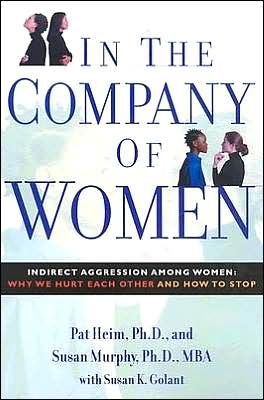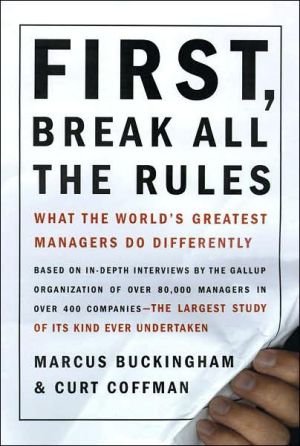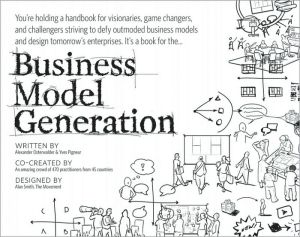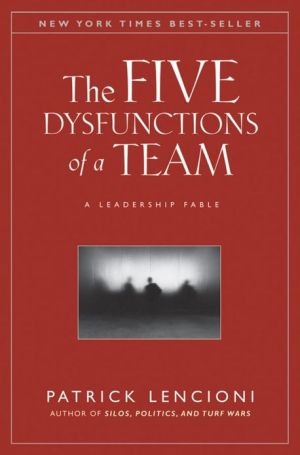In the Company of Women: Indirect Agression Among Women: Why We Hurt Each Other and How to Stop
In the Company of Women explains how indirect, or "relational," aggression can hurt women and hinder them from achieving success and harmony in their adult lives. Gender studies have shown that when a goal is in sight, men generally use direct action to attain it. Women, on the other hand, have been socialized to express aggressive actions through indirect means-using behavior such as shunning, stigmatizing, and\ \ With startling insights into the meaning of our everyday behavior, this...
Search in google:
Two leading experts on gender issues in the workplace describe how indirect aggression among women undermines their professional and personal success, and explain how to change conflict into cooperation. Following the success of Queen Bees and Wannabes and Odd Girl Out, about aggression in girls, In the Company of Women explains how indirect, or "relational," aggression can hurt women and hinder them from achieving success and harmony in their adult lives. Gender studies have shown that when a goal is in sight, men generally use direct action to attain it. Women, on the other hand, have been socialized to express aggressive actions through indirect means-using behavior such as shunning, stigmatizing, and gossiping to emotionally cripple those standing in the way of the achievement they seek. With startling insights into the meaning of our everyday behavior, this book offers straightforward techniques to change conflict among women into cooperation by resolving discords peaceably, building relationships, and making the most of women's unique leadership and communication skills.
In the Company of Women \ Indirect Aggression Among Women: Why We Hurt Each Other and How to Stop\ \ By Patricia Heim Jeremy P. Tarcher \ Copyright © 2003 Patricia Heim\ All right reserved.\ ISBN: 9781585422234\ \ \ Chapter One \ The Golden Triangle:\ Relationships, Power,\ and Self-Esteem\ Relationships\ It has become almost axiomatic that women live in a web of relationships. We have developed a great facility for relatedness, and we need these connections in order to maintain our sense of personal well-being. Jean Baker Miller, a clinical professor of psychiatry at Boston University of Medicine, explains that for women, "all growth occurs within emotional connections, not separate from them ... To feel 'more related to another person' means to feel one's self enhanced, not threatened. It does not feel like a loss of a part of one's self; instead it becomes a step toward more pleasure and effectiveness."\ Relationships are such a critical element in the world of women that they are also central to our dealings in the business world. At the office we also tend to think relationally and work along relational, not hierarchical, lines (we'll get into this more in chapters 3, 4, and 5). Women often define career success by their ability to create affiliation with others and develop relationships in the work setting: "In my time at the Acme Company, my boss became my best friend, and tenyears later, she's still my best friend." Organizational psychologist Carol Gallagher has found that the ability to maintain positive relationships was among the four critical success factors in the careers of the two hundred high-ranking senior executive women she studied. "The ability to develop relationships is imperative in crossing the threshold to the next level," she writes in Going to the Top. One of her interviewees explained, "On a scale of one to ten, I would give relationships a ten ... I don't think you can get ahead without them."\ The maintenance of relationships in the workplace is also far more important to women than to men. In Susan's doctoral research into twenty-one career values (such as risk taking, economic security, and altruism) across three generations of men and women (Gen-Xers, baby boomers, and mature workers), she found that no matter what the age, the importance of social interactions in the workplace is the most significant difference between the genders. Social relationships were also significantly more important to women than to men, ranking fourth out of the twenty-one values. Susan's research and dozens of other studies have proven that women value both social interactions and friendships significantly more than men do. They consider interpersonal relations important in their career development. They derive meaning in their lives predominantly through these interpersonal relationships and by observing and learning from others as well as their own life experiences.\ Because of our focus on relationships, women are more likely to judge and care about people based on their innate qualities rather than their position in the corporate hierarchy. Consequently, female executives are more likely to adopt a collaborative leadership style, to share information and involve others in the decision-making process. We need our colleagues to make our work fulfilling and enjoyable, but also so we ourselves can be maximally productive. We therefore are more likely to pay attention to and address emotional issues at work. We often make concerted efforts to get along with our female colleagues. We share feelings and use heartfelt empathy to help assuage upset feelings or mitigate a difficult situation.\ Women who have met with success in terms of concrete achievements but not what's called "affiliative success" often feel empty, lonely, and isolated. Susan consults in the financial industry with the senior women at a Fortune 100 company and was surprised to discover that what many of the female executives there want is not tactical advice such as "If Fred does this, and I respond in this way, what do you think will happen?" but empathy. During their consultations, the women pour their hearts out about the pain they feel, often from the other women in the company. For instance, two women had quit in Cynthia's department, and she believed their action was due to the way in which she had treated them. She spent almost an hour agonizing over how bad she felt, until finally Susan said, "Why don't you ask them why they left?"\ The following week, Cynthia told Susan that she had phoned the women, and they both told her they had quit for other reasons. Whether or not her former employees were telling the truth, this executive certainly felt a lot better, believing her relationships had been preserved.\ Because relationships are so important to women, it is all the more painful when they deteriorate. We will explore how this happens more fully in chapter 2.\ Power\ Power is the ability to get things done. It is extremely important: without power you would find it impossible to reach your personal and professional goals. In 1959, psychologists John French and Bertram Raven at UCLA identified six kinds of power that both genders utilize inside and outside the workplace:\ * Reward power: the ability to give something to someone. You can reward another with a promotion, gifts, or praise. You have something that she wants.\ * Coercive power: the ability to punish someone, to demote her or otherwise harm her career progress. Derogatory comments can also fall under this category.\ * Legitimate power: power conferred on you by the organization. You are given the title of vice president or appointed manager of the department or leader of the team.\ * Expert power: power derived from your unique abilities or skills. You're the only person in the office who knows how to fix the computers, or perhaps you have expertise in managing the boss.\ * Referent power: power based on your personal affection for or identification with another person or group. People do as you ask simply because they like and trust you. You have referent power over a friend who wants to please you.\ * Associative power: power derived from whom you know and how you associate with them rather than what you know (expert power). You gain power by dropping names.\ Power exists in relation to someone or something else but never in a vacuum. It can be a double-edged sword, especially for women in the workplace, because it's much more straightforward for men to wield power on the job than for women. When men take command of a situation, they're perceived as resolute and authoritative. They are focused on winning and will often take charge. These can be positive, even comforting, attributes in a crisis. We might respect a powerful man, especially if he can provide structure and direction to a group during a time of confusion.\ But women are in a more precarious position when they try to appear powerful. Unfortunately, power and friendship don't easily mix among women; acting as if you have power can skew female relationships. Friendship implies giving to another person and sharing, whereas power can result in your taking from the other person or directing her activity. To women, these do not feel like friendly actions. In fact, these behaviors could be perceived with downright hostility. Consequently, if you exert your power on the other women at the office in the same way that men do, you can easily provoke a catfight.\ The Perils of Mixing Friendship and Power\ Men more often experience "friendliness" with their co-workers, rather than friendships. They tend to be guarded when it comes to divulging intimate information about themselves to co-workers for the sake of their own survival in the hierarchical business world. Moreover, they are more apt to focus on their professional goals as well as on their own political survival in a corporation while women are often more focused on keeping their relationships with others intact.\ Because relationships are so important to women, referent power (the power of friendship, mutual affection, and trust) can be more important to us than to men. And it's also the type of power that may be the most problematic. Women have much higher expectations of power sharing with those they are closest to than men do. Consider the following scenario: Your friend and former co-worker is promoted. She suddenly has more conferred legitimate power than you do. Chafing from the imbalance, you may feel tempted to withhold affection (your referent power), and a destructive conflict can ensue.\ Or the opposite can occur: You genuinely like one of your employees and give her lots of leeway in her use of time. Such an employee can have a good deal of referent power over you. In fact, you may fear disturbing the friendship if you speak up, but you do eventually note that her work is slipping. Using your legitimate power, you talk with her about her unacceptable performance. You begin to use coercive power when you bring up her yearly evaluation. (She knows there are negative consequences to your disapproval.) As a way of evening out the power play, she withdraws her referent power from you. She goes to lunch with others without inviting you, throws work on your desk instead of handing it to you, and responds curtly when you ask about her family.\ Some women managers will even back off from following through on discipline because they fear the damage it will do to their relationship with a female employee. The bottom line: you can't let referent power drive your management behavior, even though it may be attractive.\ Chip Theory: Women's Unique Path to Power\ It's wise to approach power in a distinctively female way in order to make it work for you. For example, consider the use of what Patricia Palleschi, a vice president at the Walt Disney Company, calls Chip Theory. This is based on a sense of equity: each of us is endowed with a certain number of chips of power-positive attributes or actions-that we constantly exchange with others. We possess, give, and get these power chips in three ways:\ * Interactions: Saying "Hi, how are you?" whenever you meet a co-worker. Taking a genuine interest in her family, vacation, or new project at work.\ * As a birthright: Some people are simply born with lots of chips-think of the Rockefellers. Fortunate chip-rich folks may be blessed with good looks, talent, great intelligence, athletic prowess-inherent qualities.\ * Active acquisition: People proactively seek out chips. They will obtain an MBA or Ph.D., or they'll strive for the title of vice president. Some may marry handsome or rich significant others to increase their store of chips, or they'll frequent plastic surgeons who can artificially enhance their chip bank accounts by tucking their tummies or lifting their sagging eyelids and chins.\ Although you may not have been aware of it until now, everyone with whom you interact keeps a chip bankbook on you. All day long you are gaining and losing chips with your direct reports, peers, and higher-ups. They know where you stand with them at any given moment, and you know where they stand with you.\ Indeed, one of the most important rules in Chip Theory is that we always make it equal in the end-that is, if someone tries to take away our chips, we will find a way to even the score. For instance, if upon arriving at work, your warm and friendly greeting to co-worker Brenda is met with a flat "Oh, hi," you will probably greet this person much less effusively in the future. In fact, you may eventually stop saying hello to Brenda altogether. Conversely, if that colleague is kind and generous with her chips, most likely you will feel inclined to return them in kind.\ Pat learned that lesson as a university professor. Her secretary, Sarah, worked in a windowless cubicle all day, and Pat knew that she valued relationship chips-the simple "Hi, how are you?" "What are you doing?" "What's new?" interactions.\ One day, Pat was working with her boss, Kim, in Kim's office. Sarah came in, dropped off some typing for Pat, and left. Perturbed, Kim turned to Pat and asked, "When did you give her that typing?"\ "This morning."\ "Does she always bring it when she's done?"\ "Yes, of course," Pat responded, surprised at this line of questioning.\ "Well I gave Sarah typing to do three days ago, and she still hasn't finished it. She never brings my work to me when it's done. I always have to ask her for it." Kim hadn't been paying Sarah her interaction chips, and Sarah had found a way to make it even in the end.\ The exchanges that occur at holiday time are another way to understand Chip Theory. When we receive a greeting card, we usually feel compelled to send one back. Gifts must be of equal value-when they're not, both the giver and receiver become uncomfortable. (Some people even keep extra presents around, just in case someone surprises them with an unexpected one.) Men usually don't value the exchanges of greeting card chips as much as women do; they will rarely send male friends birthday cards. Men will exchange tickets to Lakers or Yankees games, however, which hold much greater meaning and value to them.\ When we talk about Chip Theory, people sometimes say, "But isn't this manipulative?" Our answer is, "Yes, indeed, it is." But consider this: We all started manipulating other people at the same moment-Day One, when we realized there was a connection between screaming and getting fed-and we have continued to manipulate every day of our lives since then. We have just become unconscious of it and more graceful at it.\ We all need to manage our relationships with people, and wielding chips is simply an automatic tool to accomplish that end.\ Making It Even\ Female managers often believe that because they're in charge, employees have to do what they say. But we've found that somehow, in some way, someday, female employees will always make it even in the end. Jill was hired to manage a group of people who had to travel to relatively undesirable cities. When employees took these business junkets, they were allowed a "safe-arrival call"; that is, once they reached their destination, they could phone home to say "I made it" on the company's dime.\ \ \ Continues...\ \ \ \ Excerpted from In the Company of Women by Patricia Heim Copyright © 2003 by Patricia Heim. Excerpted by permission.\ All rights reserved. No part of this excerpt may be reproduced or reprinted without permission in writing from the publisher.\ Excerpts are provided by Dial-A-Book Inc. solely for the personal use of visitors to this web site. \ \
In the Company of Women Introduction\ Part I: Conflict: Why Women Behave the Way They Do\ One: The Golden Triangle: Relationships, Power, and Self-Esteem Two: The Power Dead-Even Rule Three: From the XX Files: The Origins of Woman-to-Woman Conflict Four: Lessons from Childhood Five: The Bitch Factor: Indirect Aggression\ Part II: Colleagues: Finding Powerful Allies and Friends Among Women in the Workplace\ Six: The Goal Is the Relationship Seven: Loosening Power Dead-Even Double Binds Eight: How to Have Healthy Conflict with Another Woman Nine: Handling Conflict with Style Ten: How to Be an Effective Female Leader Eleven: Building a Dream Team\ A Final Word\ Appendix A: Books on Self-Esteem Appendix B: Conflict Styles Questionnaire Answer Key








